Search titles
Displaying results 1 to 10 of 160.

Ink and Land »
Documenting Factionalism around a Prospective Mine in Papua New Guinea
Authored by: Willem Church
Publication date: 2025
Ink and Land is an ethnographic account of political and legal struggles over landownership in Papua New Guinea, in which competing factions seek recognition as customary landowners of Wafi-Golpu, a major prospective copper-gold mine. Drawing on extensive archival research, oral histories, court documents and fifteen months of fieldwork, the book examines how different groups attempt to harness resource extraction for their benefit and how, in doing so, they reshape their social worlds through the medium of affidavits, court declarations and incorporation certificates. To analyse this process, the book advances the concept of antagonistic documentality—a form of conflict in which parties engage in conflicting world-building projects through and about documents and, in doing so, create an order of paper that outlasts the disputes themselves. Through this detailed case study, Ink and Land reveals how legal and bureaucratic battles over resource extraction in Papua New Guinea formalise factionalism, consolidate elite control over new sources of wealth, and redefine the nature of groups and landownership. By focusing on conflict over documents as a process of social transformation, the book offers fresh insights into the politics of land, law and resource extraction in the contemporary Pacific.
Coming soon
Notify me
Dregs »
Love and Monsters in Small Town New Zealand
Authored by: Laura McLauchlan
Publication date: March 2025
Girls who join dog packs, boys who gain strength from trees, men who love bodies with nobody in them: Dregs is a collection of tenderly monstrous love stories, set in a shadowy small town of the same name. Based in South Canterbury, New Zealand, these lovingly disturbing fictions welcome the strange and other-worldly, while keeping an ethnographic eye trained on the classed, religious, gendered, racialised and species-based forces shaping this rural region of New Zealand's South Island.
While at times grotesque, these darkly loving, richly illustrated tales offer new avenues for ethnographic research and shed new light on the region, giving voice and form to unspoken aspects of this antipodean rural idyll. Shaped by a deep respect for the monstrous feminine, regardless of the gender of the bodies in which such forces appear, Dregs: Love and Monsters in Small Town New Zealand is a product of both an anthropological sensibility and a trust that naming and finding ways to live well with our monsters is a vital aspect of living well in our times.
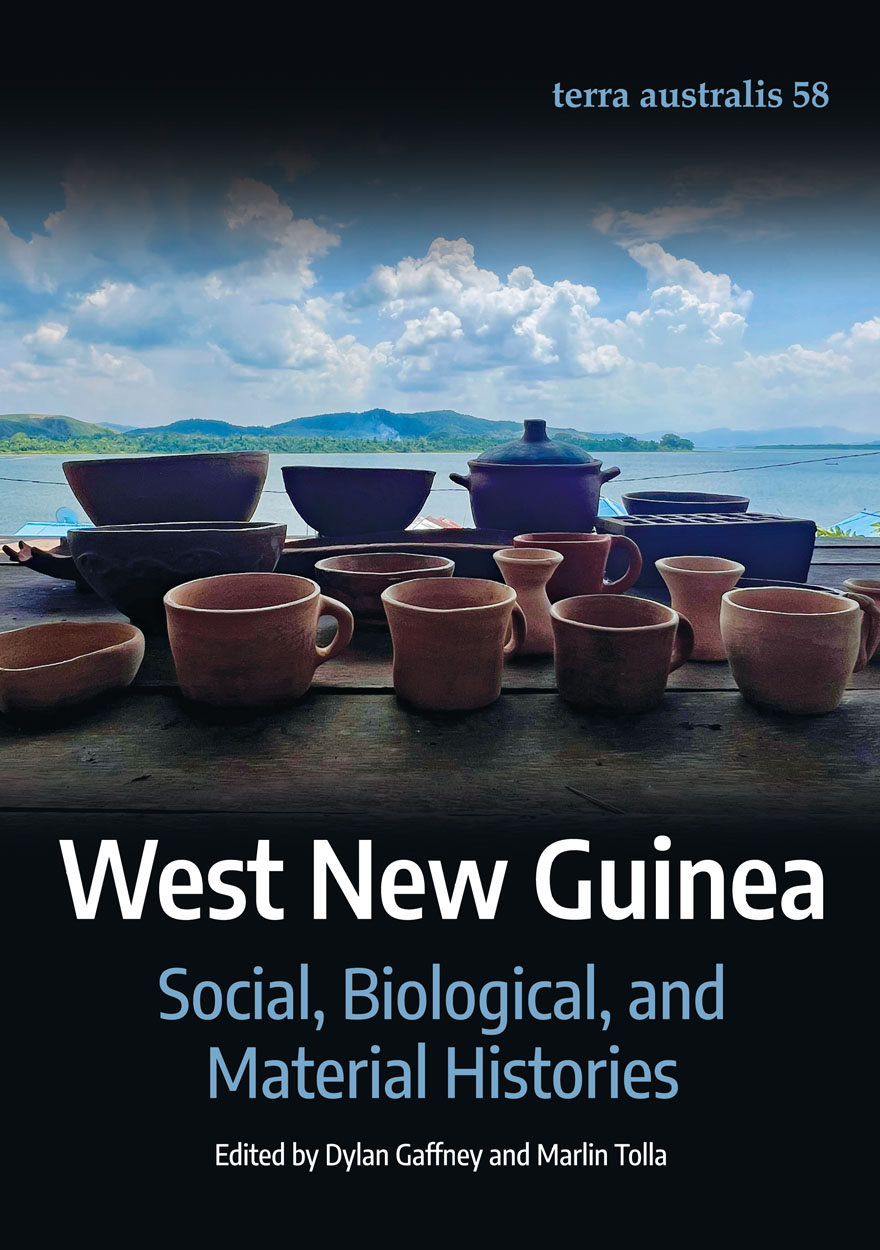
West New Guinea »
Social, Biological, and Material Histories
Edited by: Dylan Gaffney, Marlin Tolla
Publication date: February 2025
This book explores the human past in West New Guinea (otherwise known as Indonesian Papua, West Papua, or Irian Jaya). The western part of New Guinea and its surrounding islands were critical for the early peopling of the Pacific region over 50,000 years ago, when Homo sapiens moved out of Africa and into Asia, seafaring through the islands of Wallacea as far as New Guinea, the Bismarck Archipelago, and the Solomon Islands. After arriving on the shores of West New Guinea, people adapted to diverse environments including coral reefs, tropical rainforests, swamps, montane cloud forests, and savannah grasslands. Over millennia, people transformed these habitats by burning and cutting the forests, translocating plants and animals, and managing access to resources. Food production later emerged in the region as the global climate warmed up around 10,000 years ago. Between 4000–3000 years ago, the Austronesian languages began to enter West New Guinea, with its speakers settling around the coasts and offshore islands. New forms of exchange connected people and, particularly within the last 2000 years, drew West New Guinea into global networks. The objects produced and traded at ethnographic contact—like pottery, stone axes, string bags, shell ornaments, and wooden carvings—can be informative about these networks, but they are increasingly changing as people navigate and transform their material worlds in the present. The examination of these objects in museums not only casts light on their makers, traders, and collectors, but also highlights the ongoing connections that Papuans have with their material culture in the twenty-first century.
The 22 chapters in this book contribute novel perspectives and critical data on each of these themes. The authors come from archaeology, social anthropology, biological anthropology, linguistics, museology, palaeoecology, and beyond. They write about a wide array of West New Guinea’s regions, including the highlands, north and south coasts, Bird’s Head Peninsula, Cenderawasih Bay, and the Raja Ampat Islands.

Ritual Voices of Revelation »
The Origin Narratives of the Rotenese of Eastern Indonesia
Authored by: James J. Fox
Publication date: November 2024
This is a study of a collection of oral compositions of the Rotenese of eastern Indonesia. Recited in semantic parallelism, these compositions require a strict pairing of all words to produce correspondingly ordered verses. These narrative verses create an elevated discourse—a ‘scriptural voice’—intended to reveal the origins of Rotenese cultural life. The translations and exegeses of these origin narratives offer a work of world-class poetic imagination that recounts a dynastic contest between the Sun and Moon and Lords of the Ocean Sea and its epic consequences.
As background to the presentation of these narratives, this study provides a description of Rotenese life expressed in the complementary pairs that the Rotenese themselves use to categorise their world. A concluding chapter examines the Rotenese acquisition of Christianity and the subsequent retelling of the Biblical Genesis in Rotenese parallel verse, thus continuing the general examination of the use of parallelism as elevated ritual discourse. Gathered from poets from two domains on the island, most of these compositions date from fieldwork in 1965–66 and in 1973. The publication of these materials represents the summation of more than fifty years of research.
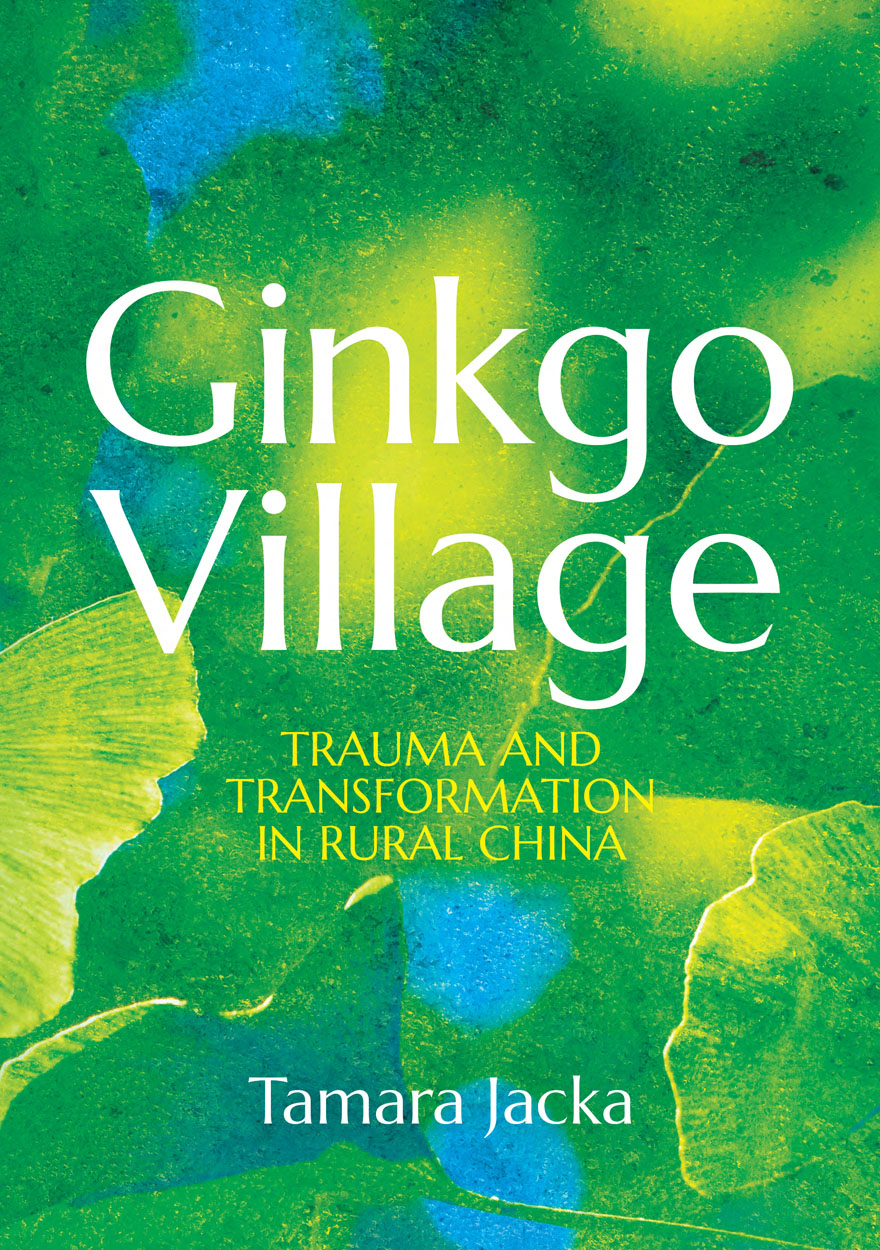
Ginkgo Village »
Trauma and Transformation in Rural China
Authored by: Tamara Jacka
Publication date: June 2024
Ginkgo Village provides an original and powerfully intimate bottom-up perspective on China’s recent tumultuous history. Drawing on ethnographic and life-history research, the book takes readers deep into a village in a mountainous region of central-eastern China known as Eyuwan. In the twentieth and early twenty-first centuries, villagers in this region experienced terrible trauma and far-reaching socio‑economic and political change. In the civil war (1927–1949), they were slaughtered in fighting between Nationalist and Communist forces. During the Great Leap Forward (1958–1961), they suffered appalling famine. Since the 1990s, mass labour outmigration has lifted local villagers out of poverty and fuelled major transformations in their circumstances and practices, social and family relationships, and values and aspirations.
At the heart of this book are eight tales that recreate Ginkgo Village life and the interactions between villagers and the researchers who visit them. These tales use storytelling to engender an empathetic understanding of Ginkgo Villagers’ often traumatic life experiences; to present concrete details about transformations in everyday village life in an engaging manner; and to explore the challenges and rewards of fieldwork research that attempts empathetic understanding across cultures.
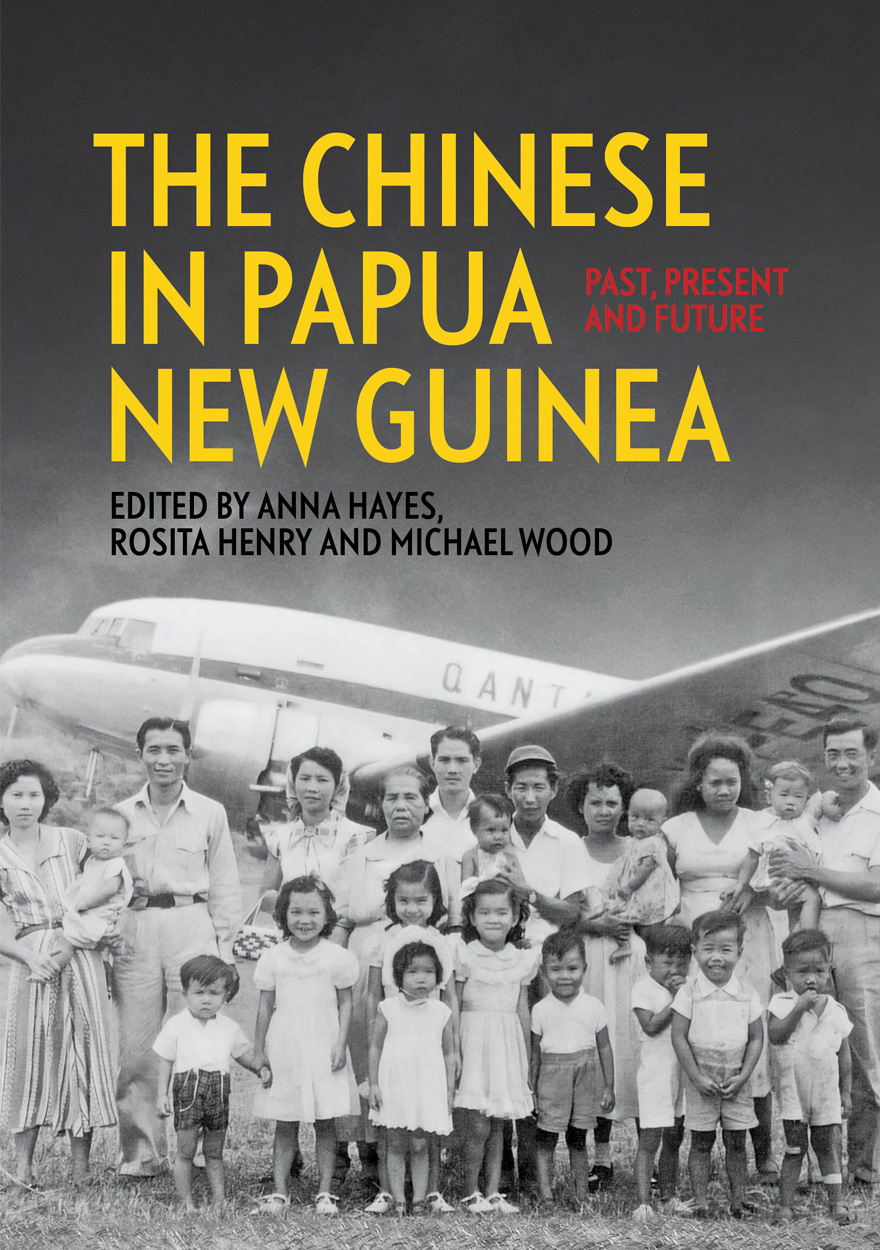
The Chinese in Papua New Guinea »
Past, Present and Future
Publication date: May 2024
Papua New Guinean, Chinese and Australian people have long been entangled in the creation of complex histories and political debates concerning the similarities and differences of each group. These debates are fundamental to understanding how a sense of national unity in Papua New Guinea is formed, as well as within analyses of the wider world of strategic power dynamics and influence. The Chinese in Papua New Guinea offers a comprehensive and nuanced examination of the Chinese in Papua New Guinea. Chinese, Papua New Guinean and Australian interactions are analysed in the context of ongoing shifts in colonial power, increased regional engagement with China, and current political instabilities across the Indo-Pacific region. The many ways the Chinese have been defined as actors in PNG’s history and politics are analysed against the backdrop of a rapidly changing global order. The complexity of Chinese experiences within Papua New Guinea is given expression, here, with chapters that stress political and historical heterogeneity, the importance of language for understanding Chinese social relations, and that articulate rich personal experiences of race relations.
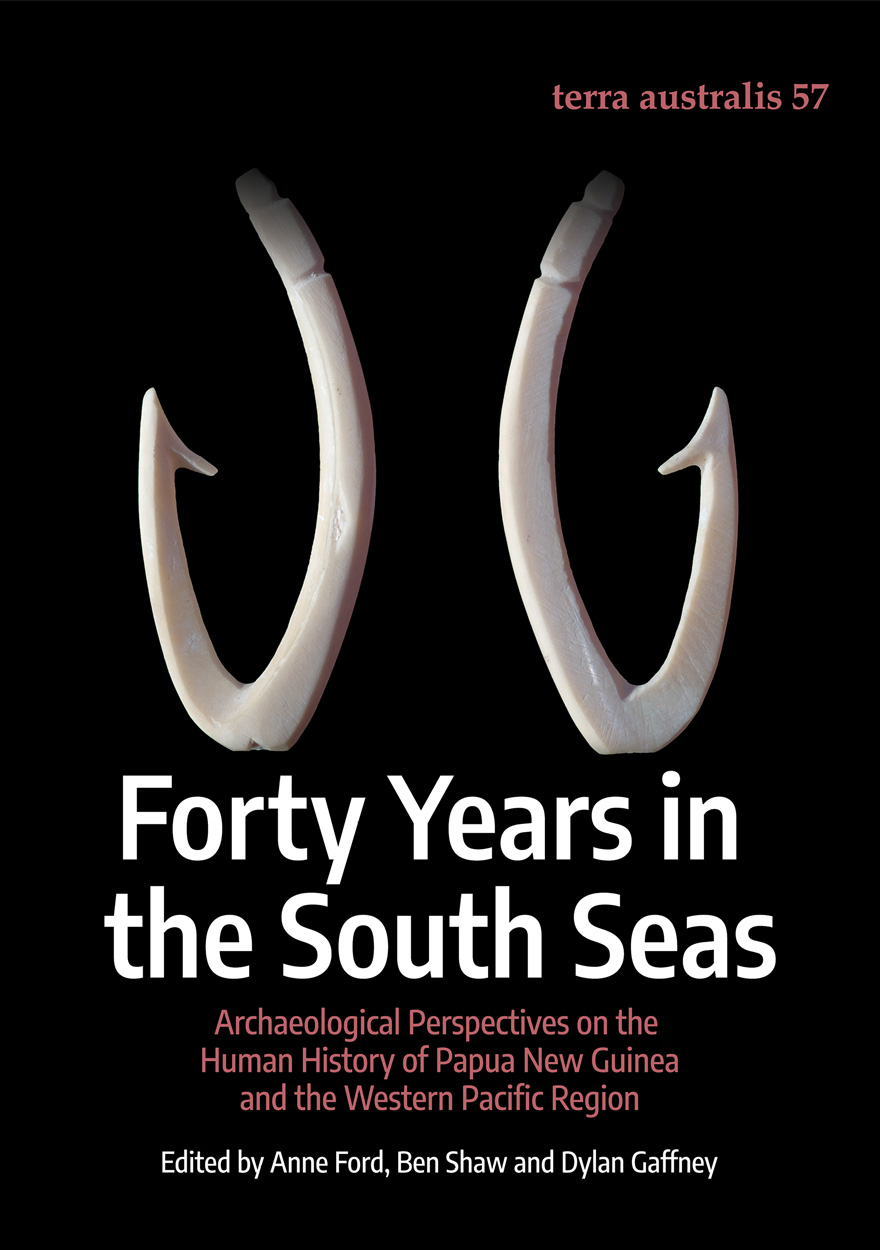
Forty Years in the South Seas »
Archaeological Perspectives on the Human History of Papua New Guinea and the Western Pacific Region
Publication date: May 2024
“This edited volume of invited chapters honours the four decades of fundamental research by archaeologist Glenn Summerhayes into the human prehistory of the islands of the western Pacific, especially New Guinea and its offshore islands. This area helped to shape and direct many ancient dispersal events associated with Homo sapiens, initially from Africa more than 50,000 years ago, through the lower latitudes of Asia, into Australia, New Guinea, the Bismarck Archipelago, and possibly the Solomon Islands.
Around 3000 years ago, coastal regions of northern and eastern New Guinea, and the islands of Melanesia beyond, played a major role in the Oceanic migrations of Austronesian-speaking peoples from southern China and Southeast Asia, migrations that have recently attained new levels of genetic complexity through the analysis of ancient DNA from human remains. For the first time, humans of both Southeast Asian and New Guinea/Bismarck genetic origin reached the islands of Remote Oceania, beyond the Solomons.
Many of the chapters in this book deal with archaeological aspects of this Austronesian maritime expansion (which never seriously impacted the populations of the New Guinea Highlands), especially as revealed through the analysis of Lapita pottery and associated artefacts. Other chapters offer archaeological perspectives on trade and exchange, and on related topics that extend into the ethnographic era.
The research of Glenn Summerhayes stands centrally amongst all these offerings, ranging from the discovery of some of the oldest traces of Pleistocene human settlement in Papua New Guinea to documentation of the remarkable phenomenon of Lapita expansion through Melanesia into western Polynesia around 3000 years ago. This volume is a fitting celebration of a remarkable career in western Pacific archaeology and population history.”
— Emeritus Professor Peter Bellwood, The Australian National University
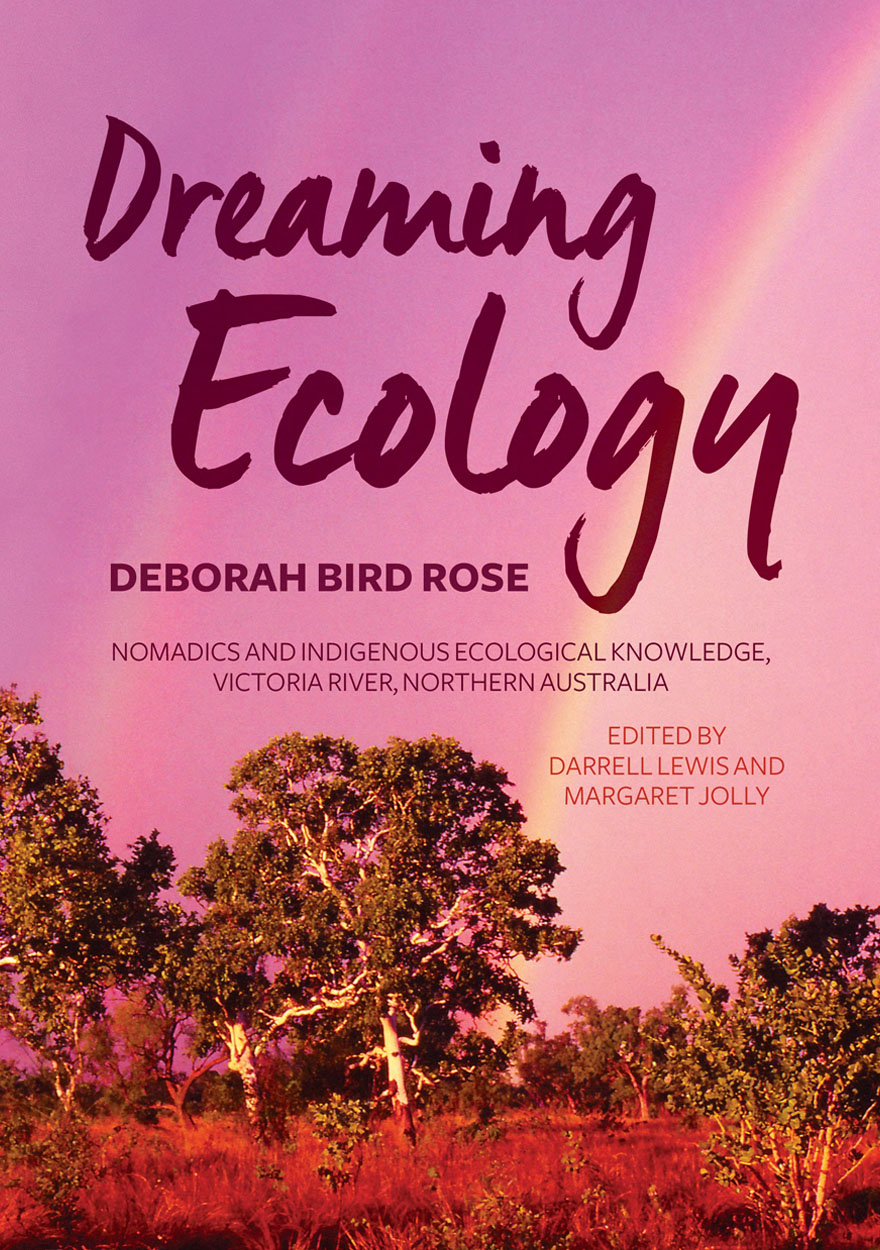
Dreaming Ecology »
Nomadics and Indigenous Ecological Knowledge, Victoria River, Northern Australia
Edited by: Darrell Lewis, Margaret Jolly
Authored by: Deborah Bird Rose
Publication date: May 2024
In the author’s own words, Dreaming Ecology ‘explores a holistic understanding of the interconnections of people, country, kinship, creation and the living world within a context of mobility. Implicitly it asks how people lived so sustainably for so long’. It offers a telling critique of the loss of Indigenous life, human and non-human, in the wake of white settler colonialism and this becoming ‘cattle country’. It offers a fresh perspective on nomadics grounded in ‘footwalk epistemology’ and ‘an ethics of return sustained across different species, events, practices and scales’.
‘This is the final and most substantial of Debbie’s love letters to the Aboriginal people of the Victoria River Downs. I say this because there is such a sense of reverence, wonder and respect throughout the book. The introduction of concepts of double-death, footwalk epistemology, wild country … are not only organising ideas but characterisations arising from what Debbie hears, sees and feels of herself and Aboriginal others … I think of it in terms of love, if love is care, reciprocal respect, deep connectivity and a strong desire to never make less of the people she chose to commit herself to.’
—Richard Davis
‘This book was a pleasure to read, filled with careful description of people, places, and various plants and animals, and insightful analysis of the patterns and commitments that hold them together in the world.’
—Thom van Dooren
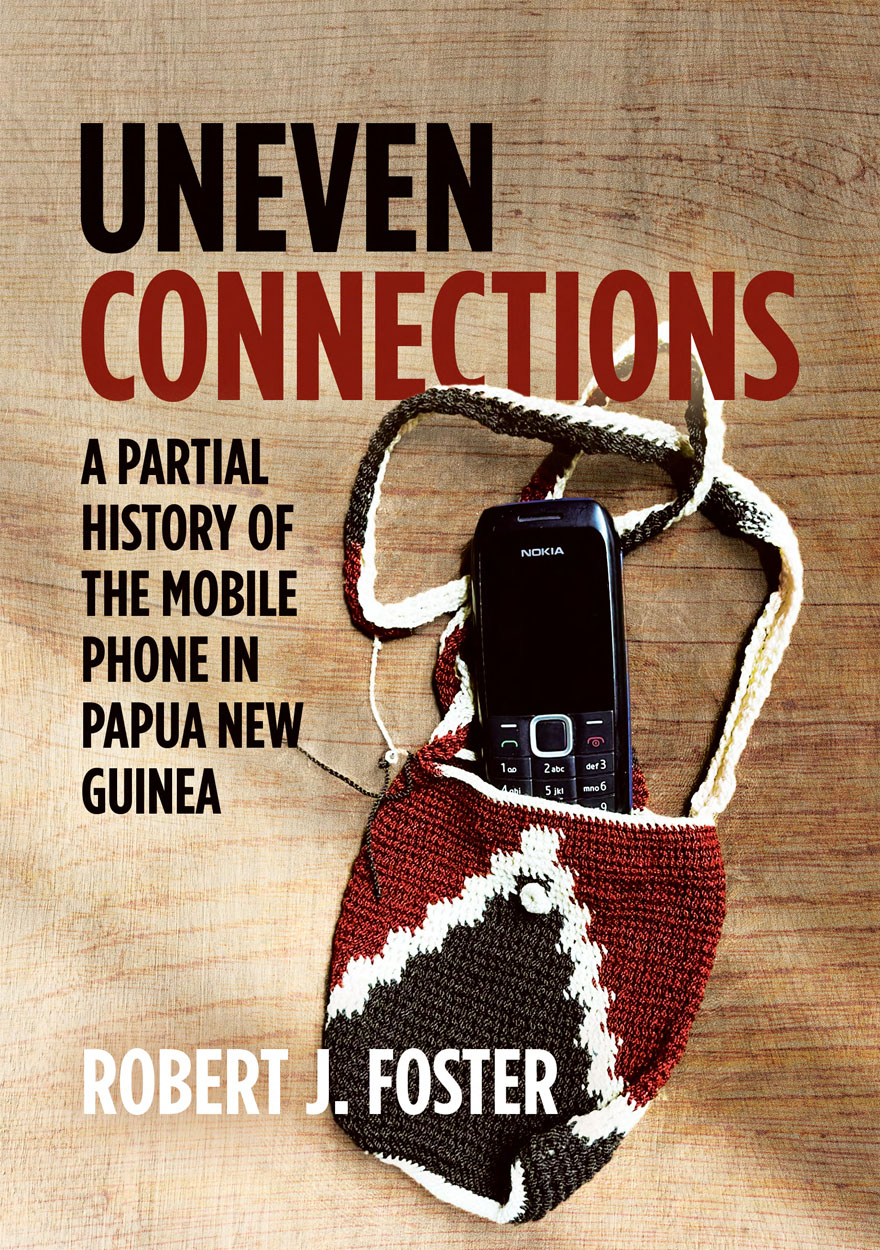
Uneven Connections »
A Partial History of the Mobile Phone in Papua New Guinea
Authored by: Robert J. Foster
Publication date: March 2024
In the first years of the 21st century, economic liberalisation began to transform telecommunications services throughout the Pacific Islands. Government regulators, corporate executives and everyday consumers hopefully imagined that opening mobile phone markets to competition would result in greater access, lower costs and accelerated development.
Uneven Connections examines the ways in which liberalisation took hold in Papua New Guinea (PNG) when a unit of the Caribbean-based mobile network operator Digicel Group Ltd. seized the opportunity to compete with the state-sponsored incumbent. The book highlights how mobile phones entered the lives of urban and rural Papua New Guineans after Digicel’s arrival in 2007. In so doing, it describes a moral economy in which companies, consumers and state agents continually negotiate who owes what to whom. In what ways have these various actors invented and negotiated new forms of both freedom and constraint?
Uneven Connections advances understanding of how a so-called digital revolution in PNG unfolded, resulting in outcomes that often confounded the expectations of policy makers and ordinary citizens alike. It assesses the extent to which some of the promises of this revolution have been redeemed and identifies the challenges faced by companies, consumers and state agents in establishing and experiencing novel forms of uneven connectivity. The book provides a short and selective history of mobile phones in PNG, ending with the sale of Digicel’s Pacific operations to the Australian company Telstra in 2022.

Grassroots Law in Papua New Guinea »
Edited by: Melissa Demian
Publication date: December 2023
The introduction of village courts in Papua New Guinea in 1975 was an ambitious experiment in providing semi-formal legal access to the country’s overwhelmingly rural population. Nearly 50 years later, the enthusiastic adoption of these courts has had a number of ramifications, some of them unanticipated. Arguably, the village courts have developed and are working exactly as they were supposed to do, adapted by local communities to modes and styles consistent with their own dispute management sensibilities. But with little in the way of state oversight or support, most village courts have become, of necessity, nearly autonomous.
Village courts have also become the blueprint for other modes of dispute management. They overlap with other sources of authority, so the line between what does and does not constitute a ‘court’ is now indistinct in many parts of the country. Rather than casting this issue as a problem for legal development, the contributors to Grassroots Law in Papua New Guinea ask how, under conditions of state withdrawal, people seek to retain an understanding of law that holds out some promise of either keeping the attention of the state or reproducing the state’s authority.



